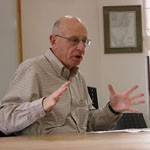Individuals in health differ on several issues:
Who is most and least likely to become infected? Can a person who is cured become ill with it again? Is it possible to produce a vaccine? Or do repeated bouts by individuals indicate that there is no way to achieve immunity? How accurate are the tests for having the disease? What about programs to trace contacts, in order to decide how someone became infected?
How long should someone be quarantined?
How long should someone be quarantined?
With these and other questions, it is no surprise that efforts to respond to an uptick in infections produce a great deal of quarrels.
In the absence of professional clarity, it’s a great place for politics.
The chair of Israel’s Knesset Corona Committee has claimed that there is no proof about restaurants or gyms as places of infection, as her reason for opposing government decisions that they be closed.
The lack of clear proof is inherent in the situation. There haven’t been enough tests, or certainty as to where people pick up their infection. But there is reason to believe that having people in close proximity, especially indoors, provides the setting for transfering infection.
But with the setting filled with individuals demanding the right to earn a living, others who assert a lack of evidence about infections, and yet others being paid lobbyists for one or another sector, there is no surprise that votes in a Knesset Committee trump decisions by the government about closing restaurants, gyms, beaches, swimming pools, and halls for weddings, Bar Mitzvot, and other celebrations.
And with different bodies competing over control, it should be no surprise that individual sectors are ordered to close, then allowed to open, then ordered to close, perhaps with detailed limitations, with the limits varying from 250 to 50, to 20, or 10, depending on setting.
So why wonder about the claims of sectors being affected? Why shouldn’t they charge the impossibility of living with the changes back and forth? And assert that they’d stay open despite officials’ decisions to close them?
Chaos?
Of course.
Israel’s choice of a Czar for Coronavirus illustrates the chaos.
It may have begun with the competition between the Prime Minister, his reputed replacement, Benny Gantz, plus the Health Minister and the Finance Minister.
Each wants control, or part of it. Why appoint a Czar and provide that person with superior control over an issue as central and critical, to both health and the economy?
Or to appoint such a person, yet refuse to provide the power to go along with a Czar’s mandate?
The first choice for a Czar fell over the issue of what authority he would have. He was an experienced hospital administrator and Director General of the Health Ministry. After his fall, he charged that the Health Ministry was a failure, without officials or information relevant to the issues.
The man chosen seemed closer to a clerk than a Czar. He was less well known, and not as pronounced as the first choice with respect to his commitment to closing sectors for the purpose of limiting infections.
We’ll see how he works out.
There is more speculation about an election. One will be required if the government budget is not enacted within a month. And there is no progress toward that goal. Blue and White demands a two year budget and Bibi is sticking with a one year proposal. But neither is moving forward.
The election, if it occurs, will be in November. Current polls show Likud dropping, due to increasing feelings that Bibi is not in control, and with more individuals badgered by openings and closings of their sectors, and finding themselves unemployed, employed, and again unemployed.
Current polls show that a right of center coalition might reach 60 mandates, if it includes Bennett’s Yamina which is currently an outsider. If near daily demonstrations outside the Prime Minister’s residence continue, and the economy does not revive considerably, we might see this as Bibi’s end. By January he’s scheduled to spend three days a week as a defendant in court. What’ll that do to his standing?
Demonstrations continue, especially near the Prime Minister’s official residence. Recently said to be 5,000 participants, with violence when the permit ended at 11:00 p.m and the police became more active. Pity the people who live nearby, and suffer from hours of noise and individuals relieving themselves wherever they can. Complaining that the police haven’t supplied porta toilets.
Lots of uncertainties. Lots of politics, which add to the uncertainties.
*
Ira Sharkansky is professor emeritus of political science at Hebrew University. He may be contacted via ira.sharkansky@sdjewishworld.com
Ira Sharkansky is professor emeritus of political science at Hebrew University. He may be contacted via ira.sharkansky@sdjewishworld.com
